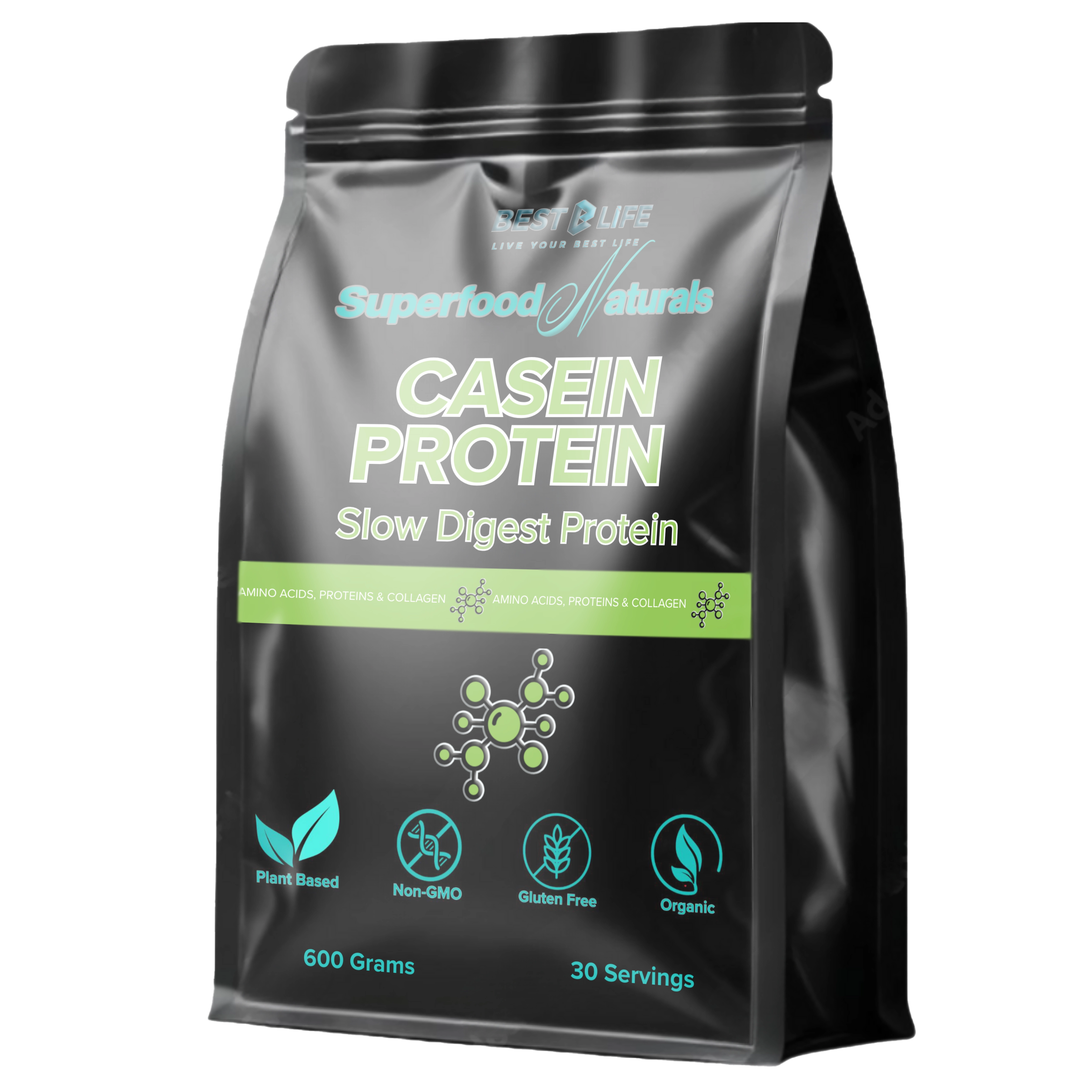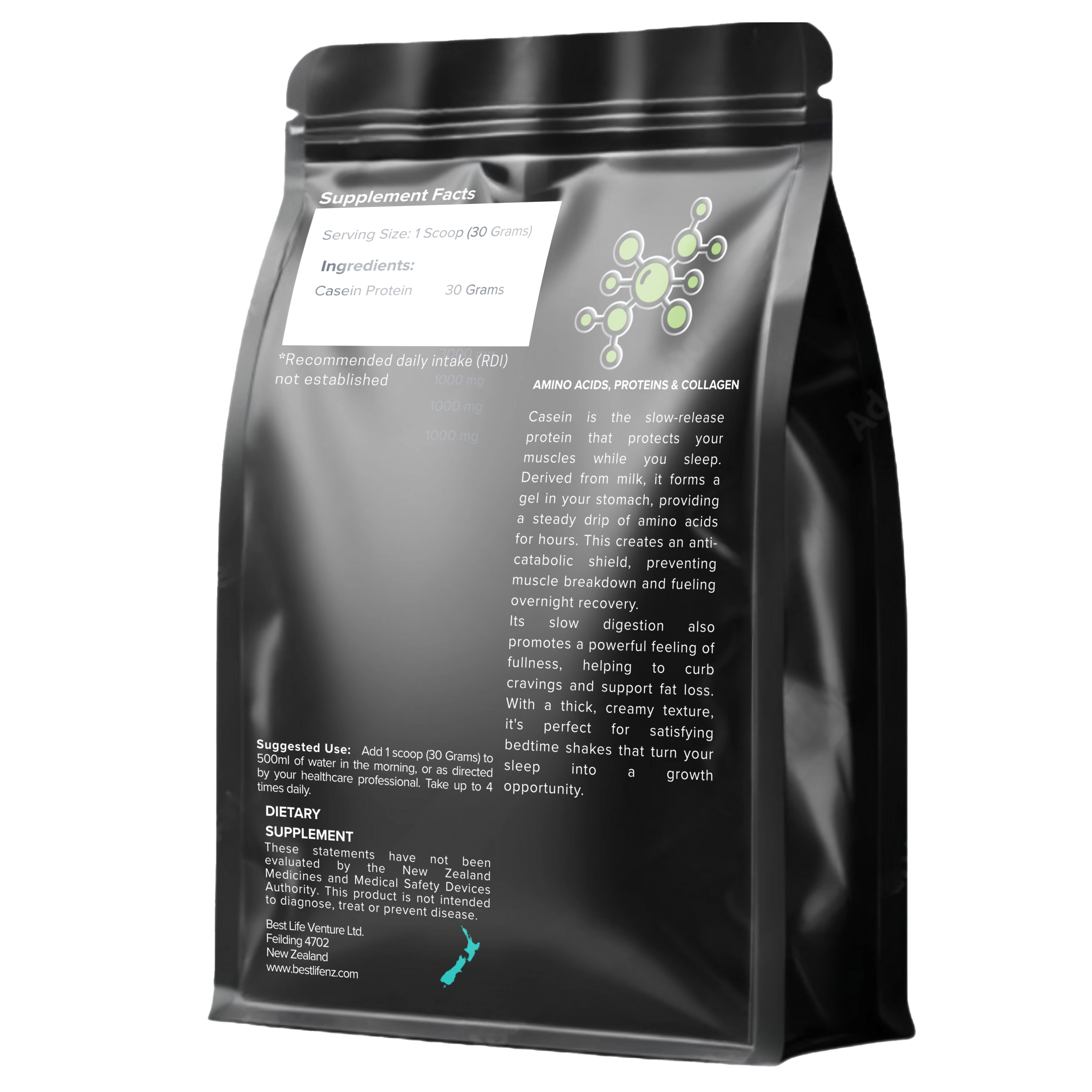Subheading
Heading
Tab 1
Use this text to share information about your brand with your customers.
Tab 2
Describe a product, share announcements, or welcome customers to your store.
Tab 3
Share information about your shipping rates, return policy or contact information.
Use this text to share information about your brand with your customers.
Describe a product, share announcements, or welcome customers to your store.
Share information about your shipping rates, return policy or contact information.


Casein Protein (600 Gram SuperFood Natural)
BestlifeNZ Casein Protein 600 gram (with single or double shot carry-container). Support muscle recovery and sustain energy levels with BestlifeNZ Casein Protein. This 600grams package offers approximately 30 servings, each providing 20g of slow-digesting protein, ideal for nighttime recovery and maintaining muscle mass.




